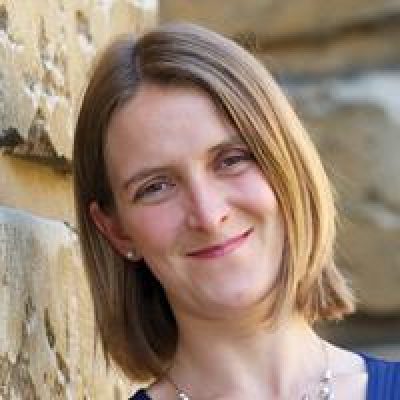"I had developed the view that belief in God and the practice of science were incompatible."
I haven’t always believed in God.
From an early age, I knew I wanted to be a scientist. At school, I was naturally drawn to the sciences and mathematics, finding English essays more stressful. My A-level biology teacher recommended I read ‘The Selfish Gene’ by Richard Dawkins, and I remember pondering his view that humans are biological machines controlled by their DNA. This clearly had an effect on me because, when I arrived at university as an agnostic, I had developed the view that belief in God and the practice of science were incompatible.
During my first week, I attended an event advertised as ‘Grill a Christian’. Four Christians sat in a row at the front of the room and were ‘grilled’ on life, God, and the universe for about two hours. I plucked up courage, raised my hand, and asked the question: “Surely you can’t believe in God and be a scientist at the same time?” — a question that perhaps you or your friends have asked as well. I discovered through their thoughtful and honest answers that, yes, in fact, you can, which was a real ‘watershed’ moment for me.
From that point onwards, belief in God became theoretically possible. I began to spend time with people who were Christians. I watched how they lived. I asked a lot more questions. And I grilled quite a few more Christians.
God or science?
To say that science and God are incompatible is a bit like asking people to choose whether programming languages or Bill Gates are the reason for the existence of Microsoft Office. Only a cursory glance tells us that both were needed for Microsoft Office to come into being, and both levels of explanation are needed for a complete understanding. One level of explanation describes the underlying mechanisms, the other describes the agent responsible for setting it all going. Moreover, to try to understand Microsoft Office without any reference to Bill Gates is only part of the story. Similarly, there is no incompatibility between the study of nature and belief in God, who started it all and continues to uphold everything today.
The ‘God or science?’ question is a false dichotomy, in which it appears that we must choose between two mutually exclusive options. Yet, in reality, there are more options available. The whole debate is littered with such dilemmas.
"put your faith not in a bizarre idea nor a religious tradition, but in a person with a flawless track record"
A person of ‘intellect’ or a person of ‘faith’?
Another dilemma is this: “You need to choose between being a ‘thinker’ or a ‘believer’. People of faith surely believe impossible things that have no credibility or bearing on reality, and the more attractive option, by far, is to be a thinker.”
Well, if we take the face-value meaning of ‘faith’ to be “trust in something or someone”, we see that everyone has faith in something, not only religious believers. We trust all kinds of things in all kinds of ways; parents, friends, pilots, surgeons. The question is, on what basis do we trust? We trust on the basis of the evidence to justify our trust. Is there a track record to show something or someone is reliable?
To be a Christian is to put your faith not in a bizarre idea nor a religious tradition, but in a person with a flawless track record. When people chose to follow Jesus Christ in first century Palestine it was based on the evidence of what they had seen of this extraordinary God-Man who taught with authority, treated with dignity, healed with power, and defeated even death. Today, we have manuscripts documenting His life. Historical evidence that, if dismissed as unreliable, would also require us to dismiss every other historical document that exists. Further, there is experiential evidence of what God is doing in the world today that can be trusted.
To exercise faith in Jesus does not require you to dispense with reason. Quite the opposite in fact. In John’s gospel, Jesus is referred to in Greek as ‘logos’ from which we get the word ‘logic’. Could it be that entering into a relationship with our Maker is the deepest expression of what it means to be rational? I discovered this for myself when I gave my life to Jesus Christ roughly halfway through a biochemistry degree. I came to realise that God had given me the very mind I used as a scientist. To continue to use my mind in pursuit of biochemistry, whilst also knowing the God behind it all, was the beginning of a great adventure…
To discover more on this topic, Sharon Dirckx’s latest book, ‘Am I Just My Brain?’, lays out the current understanding of who we are from the perspective of biologists, philosophers, theologians and psychologists, and points us towards a bigger picture…




